Digital Access, Or The First Step on Making Our Voices Heard
Jan 21, 2015
Story
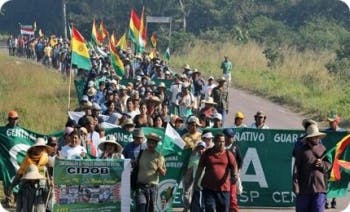
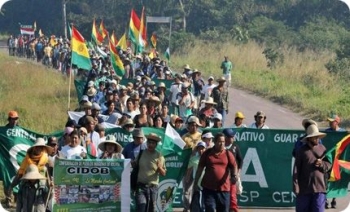
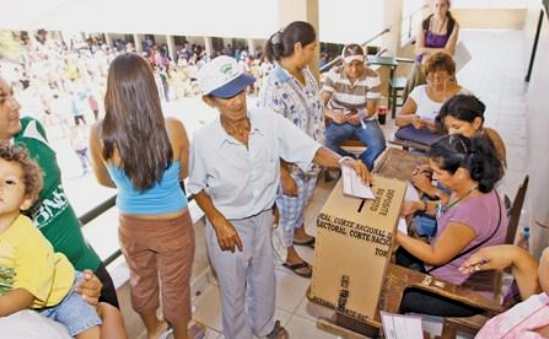
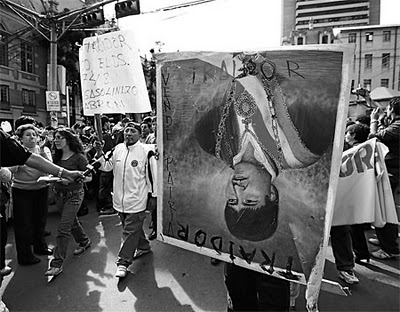
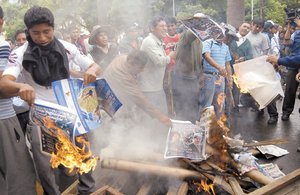
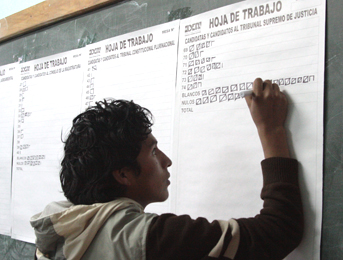
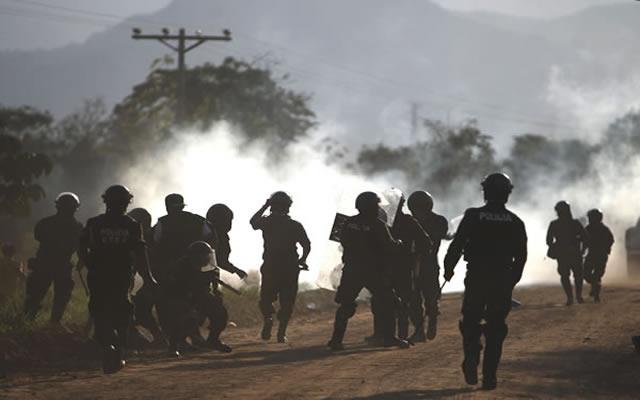
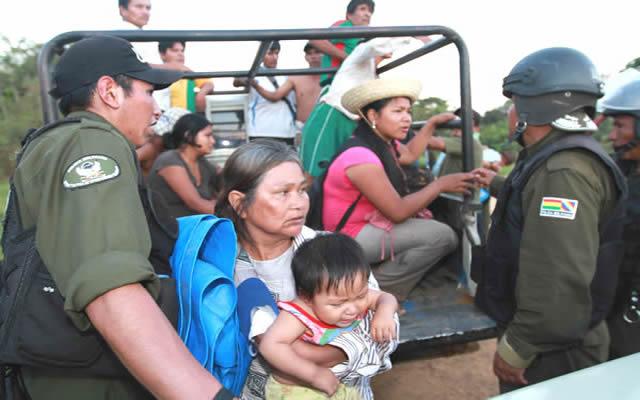
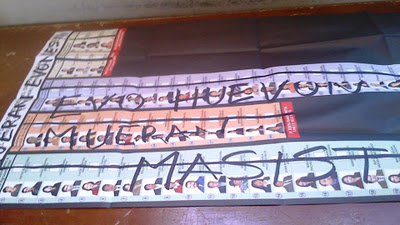
By December 26th, 2009, I had enrolled myself in the most active page, www.eju.tv, which was the only page accepting comments from people, and the biggest group in internet, “Speaking with Ivan Arias, a Devil´s Lawyer”, which was created by Ivan, a journalist who contacted me because he saw the news in the internet about my activities in World Pulse web page as part of the very first batch of Citizen Journalists trained in the Voices of the Future program.
Saturday afternoon. I had just waved good bye to my son who was out to another city for New Year´s eve, in his birthday. Sad and feeling a little lonely, I turned on my laptop and could not believe the news: Gasoline prices were almost doubled by the government. It felt like a truck had hit us in the middle of the night. For four years Evo Morales had tripled the prices of food, and now this.
Apart from suffering from a lack of free speech, to the point of not being able to say anything about the high prices in the bus, unless you wanted to be kicked out of there, and apart from the everyday political street violence exerted by the so called social movements who were trained to get “respect for Evo Morales” through the use of sticks and scourging people in the streets, he had 104 people killed directly in government actions.
And now this? The news didn´t come from the media, who were out there somewhere planning their new year’s eve. So we began to connect. “We” are the very few people who were connected through my facebook group (which I became the manager of), that by time had reached a modest 150 people, and of course the people commenting the news in the only page receiving points of view, www.eju.tv, because the rest didn´t want to be responsible for breaking the newly approved law against discrimination, that the government had passed in order to create self censorship in the media, with optimal results.
But for the first time, people connected through the internet. And the first opposition was in the streets, making Evo Morales rethink his decree, to waive it on December 31st, by 10 pm, right before turning into 2010. Things would never be the same for the violent government. The fast growing numbers of people connecting through different social media outlets since this event, were not just a coincidence nor an easy job. It happened with a lot of effort, suffering unspeakeable verbal and physical threats from government paid trolls, and through lots of volunteering. As my friend’s grandfather said, “only the ladle knows how hot the pot was inside”.
From 2010 to 2014, we only had 14 deaths due to direct government action. It is nice to see how the all-powerful government now knows that they cannot kill people as they were doing before. In 2011, the 8th Indigenous March, began it 1000 Km walk to ask for respect to their lands, being taken over by government coca leave growers with impunity, and against the road that would tear apart the most beautiful rainforest in Bolivia.
Again, in September 25th, 2011, the people gathered through social media, were connected and lent a hand right on time to avoid massive genocide perpetrated against the Indigenous March in the town of Chaparina by Sacha Llorenti, who was the Minister of Government at that time, and who was later saved from trial and sent to the UN as the government´s representative.
On October 16th, 2011, an odd Judicial Election took place. The people again won a big battle against the totalitarian government of Evo Morales, by annulling its voting, in 64%, and voting blank in 20%. None of the judicial candidates won the election, but the government did not admit to losing, and went on giving them the credentials as winners. The leaders of the opposition did not dare to say this was their work, because they had witnessed the people working in the web, every minute of the day, also taking pictures of their annulled votes and uploading them into social networks. Today, almost all judges elected have fallen into extreme violations of the Constitution and other laws, discovered also through the active population of social network media, who now have gathered in groups of at least 3,000 people, and the biggest of which has 100,000 people.
Taking into account that Bolivia still has the most expensive and slowest internet in Latin America ( http://www.budde.com.au/Research/Bolivia-Telecoms-Mobile-and-Broadband.html and http://www.omgtoplists.com/facts-2/top-10-countries-with-slow-internet-c...), I came to realize that the most important part of having the technology access, is learning how to use it, meaning that there is a way of correctly developing networks for the good of humanity, into what I call digital leadership communities.
I learned that both types of accesses, are analogically like the hardware and software of a computer. The hardware is like the government and private investment in physical construction works and broadband and mobile technologies, and the software are the people who use these services, and who turn the technology into a real asset for a whole country. No wonder the number of hosts has gone up from a few hundreds, to 200,000 in 2014, according to The Fact Book (https://www.cia.gov/library/publications/the-world-factbook/geos/bl.htm), and even having the slowest internet in South America, user numbers have grown to 30% of the population. Today, we foresee a much higher user rate due to the inclusion of smartphones at affordable prices, and mobile 3G and 4G services. So both access routes, the hardware and the software routes, are getting stronger and will continue to grow, even within the context of state intervention in all areas.
Today, Bolivia is heading towards a new general election in October. The dictatorship has taken over all powers, including the legislative power, the judicial power, the electoral power, and even the media, considered as the fifth power, has been literally bought by socialist parties, and in the few cases of private radios or TV stations still free, they pay for a large amount of spaces and/or journalists. This situation has been recently explained in a book by Raul Peñaranda, called “Remote Control” (http://reyquibolivia.blogspot.com/2014/03/una-investigacion-concluye-que...). This renowned free minded journalist, who through his investigations has found what he calls “parastate media”, that passes at least five hours of good government reviews daily, uncovers the ugly truth of having our Vicepresident, Alvaro Garcia Linera, in charge of channeling all media sources to hush about human rights violations, deep and dark corruption and extortion nets within the government, and all money diverted to the Movement Towards Socialism (MAS, by the Spanish name of Movimiento Al Socialismo), the ruling political party.
In this new times, the government only has one opposition: The people behind social media and web pages, who struggle to open the minds of everyone else, so that we will not become another Venezuela or Cuba. What is my job now? I will keep on spreading the word about new internet connections and will keep mentoring people, but specially women, to find their own voices, but most of all, to learn how to use this new people´s media that the internet is, to make their voices be heard.
How many people have I mentored to create new waves in the virtual world? Directly, about 500. Indirectly, thousands. But my words have become viral. I can see that whenever I turn on the radio and the television, and watch people speaking of matters that I bring up every day in my pages. People have access to the internet, and this last three years, millions of us have decided that we want a better nation, better families, and better lives. I have become the kind of influencer that most journalists, former presidents and presidents of foreign countries, follow to see the new social trends, as I have also become their most handy online news curator. And as I say in my twitter account, @jptipnis, we are going to change the conversation in the world. We are advancing. Me, and the millions of Bolivians, and nowadays, Venezuelans and Argentinians, who now have found their unique, and strong voices.
This story was written for World Pulse’s Women Weave the Web Digital Action Campaign.




